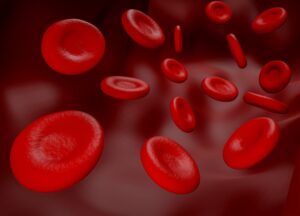
What is Haemochromatosis?
Haemochromatosis is a hereditary condition, in which excessive amounts of iron are absorbed from the diet. This iron is deposited in various organs, mainly in

Begin treatment as soon as possible; the earlier your treatment (the most effective treatment is by venesection) begins the better your chances of staying healthy. Follow your doctors treatment plan and make sure to get therapeutic phlebotomies when you need them. Ask your doctor about the best way for you to get your results, so that you may keep them for future reference. Consider getting a second medical opinion if you are not satisfied with the treatment you are receiving. Educate yourself about your condition and alert immediate blood relatives of their need to get tested.
The treatment of choice and the most effective strategy for the management of Haemochromatosis is Venesection (Phlebotomy).
Venesection means the removal of blood, just like giving a blood donation. During venesection excess iron is removed. Every unit of blood (500ml) removed contains 250mg of iron. The aim is to bring the serum ferritin level down to 50ug/l. The body then uses some of the excess stored tissue iron to make new blood cells.
Treatment is most effective when begun early as it can successfully prevent or stop organ damage. If damage has already occurred, treatment should halt any further damage and in most cases bring about improvement.
The length of treatment depends on the amount of excess iron in the body at the time of diagnosis, which is measured by the ferritin and transferrin saturation. Treatment may mean weekly phlebotomy for one to two years or until the iron levels have been reduced to a safe level. During the treatment the serum ferritin levels are monitored, the results of these tests give a measure of the remaining iron stores. Once the initial treatment is completed and the iron levels are back to normal then they are monitored every 3 months. As they start to rise again phlebotomy is recommended.
Treatment for Haemochromatosis is ongoing for life and may require blood to be removed once or twice yearly depending on how quickly the iron is reaccumulating. This is called maintenance therapy.
Oral supplements for vitamin B12 (5μg daily) and folate (500μg daily) help in the making of red blood cells during frequent phlebotomy.

Haemochromatosis is a hereditary condition, in which excessive amounts of iron are absorbed from the diet. This iron is deposited in various organs, mainly in

Haemochromatosis International Haemochromatosis International is a global alliance of haemochromatosis associations, established to advance the health of people with haemochromatosis across Europe, North America,

Begin treatment as soon as possible; the earlier your treatment (the most effective treatment is by venesection) begins the better your chances of staying healthy.

Iron builds up slowly so symptoms may not appear until age 30 or 40. These symptoms include: The early biochemical signs of haemochromatosis tend to

Diagnosis A simple blood test to check your iron status can confirm or rule out iron overload. If both the serum ferritin (SF) and the

Consider testing for haemochromatosis (HH) in: Relatives who are at risk should be tested. This is absolutely essential in the case of brothers and sisters
If you or someone you know has Haemochromatosis, we are always ready to help. Use our helpline, send us an email or join us using the links below.
